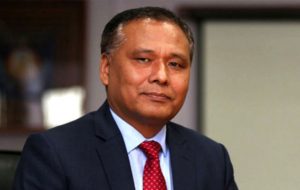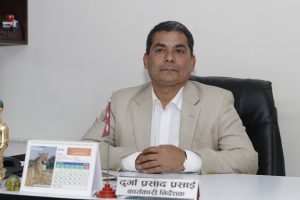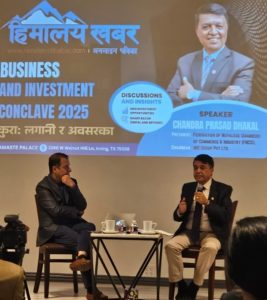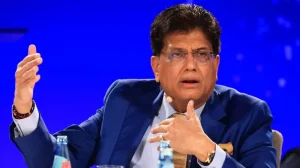Kathmandu — Nepali Congress Central Committee member Pradeep Poudel has presented a comprehensive proposal emphasizing generational transition, organizational transformation, and governance reform, saying that if the party proceeds along these lines, it can secure a majority in the next national elections.
Speaking at the Central Committee meeting in Sanepa on Friday, Poudel said the recent GenZ uprising should not be seen merely as an act of protest but as a new expression of national awareness.
“The demands raised by the young generation—ending corruption, ensuring good governance, creating employment, and promoting inclusion—are not just protest slogans but a roadmap for the country’s future,” he said.
Poudel said the youth movement has challenged outdated political thinking.
“This movement has sent a clear message that democracy must not only survive but also be revitalized,” he said. He argued that if the Nepali Congress acknowledges its weaknesses and undertakes sincere reforms, it could emerge as the main beneficiary of this generational awakening. “The frustration of the youth is an opportunity for Congress if we can translate it into policy reform and responsible leadership,” he added.
Structural and Organizational Reform
Poudel proposed the creation of a “Digi Youth Congress” to ensure active participation of young people from the ward to the central level. He said the initiative would integrate new energy, competence, and innovation into the party’s structure.
He also proposed restructuring Nepal’s three-tier government to reduce costs and increase efficiency: Limit the House of Representatives to 201 members, Restrict the Council of Ministers to a maximum of 15 members, Reduce provincial assemblies and cabinets by 40%, Shrink local governments to 400 units nationwide, Abolish District Coordination Committees (DCCs)
“To make the government more citizen-friendly and efficient, unnecessary expenses and overlapping structures must be reduced,” Poudel said. Poudel proposed a simplified and uniform membership system under which active members could directly elect district and central presidents.
He said this would make the party more democratic and empower grassroots members. He also recommended that candidate selection be conducted through internal primaries, and that the party should announce its prime ministerial candidate in advance to ensure discipline and leadership clarity.
Leadership Transition and Anti-Corruption Drive
Amid ongoing political instability and public dissatisfaction, Poudel called for an early 15th General Convention of the Nepali Congress to renew its mandate and energy. He said only a fresh, youth-inclusive leadership could revitalize both the party and the country.
“It is not just about leadership change; it is about leadership transition—one that includes generational renewal and institutional transformation,” he stated.
Poudel emphasized a zero-tolerance policy toward corruption. He proposed investigating the assets of all political officeholders since 1990 (2046 BS) and nationalizing any unexplained or illicit property. “Without restoring integrity, democracy cannot be strengthened,” he said.
Poudel’s proposal serves as a call for institutional reform and generational renewal within the Nepali Congress. As he noted, “It is time for politics not just for positions, but for the next generation.”






